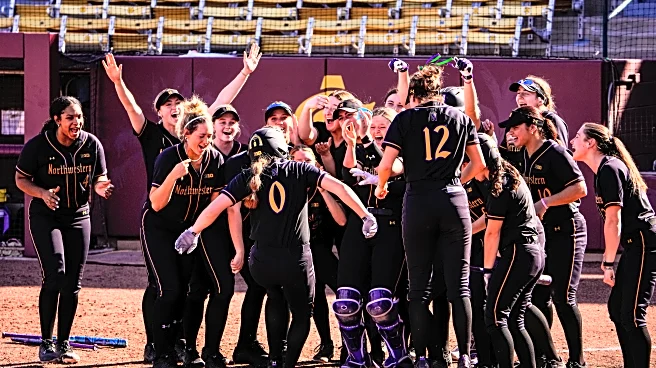What's Happening?
Recent changes to the skilled worker visa rules in the UK are impacting the construction industry. The government has retained shortage occupation status for various construction trades, allowing employers to sponsor overseas workers in roles such as welders
and plumbers. However, new salary thresholds have been introduced, requiring new hires to meet a general salary threshold of £41,700. The Migration Advisory Committee (MAC) has recommended pilot projects for sector-wide sponsorship models to help smaller firms access overseas talent more cost-effectively. These changes are part of a broader effort to adapt to increased skill and salary levels across the board.
Why It's Important?
The new visa rules present challenges for smaller construction firms, which may struggle to meet the higher salary thresholds in a competitive market. The transitional arrangements aim to give employers time to adapt without losing existing sponsored staff. The MAC's recommendations for alternative sponsorship models could provide a more flexible approach, potentially reducing administrative burdens and costs for smaller firms. This is crucial as the UK construction industry is projected to need over 250,000 additional workers by 2028 to meet demand.
What's Next?
The government is considering pilot projects for sector-wide or umbrella sponsorship models, which could be implemented in the coming years. Construction industry stakeholders should monitor these developments closely, as they could lead to new visa routes and more flexible regional thresholds. The ongoing consultation into 2026 will determine the feasibility and design of these alternative models.
Beyond the Headlines
The changes reflect a broader trend towards adapting immigration policies to meet labor market needs. The construction industry, which relies heavily on skilled foreign workers, is particularly affected by these shifts. The government's focus on maintaining robust salary and worker protection standards highlights the balance between attracting overseas talent and ensuring fair labor practices.
















